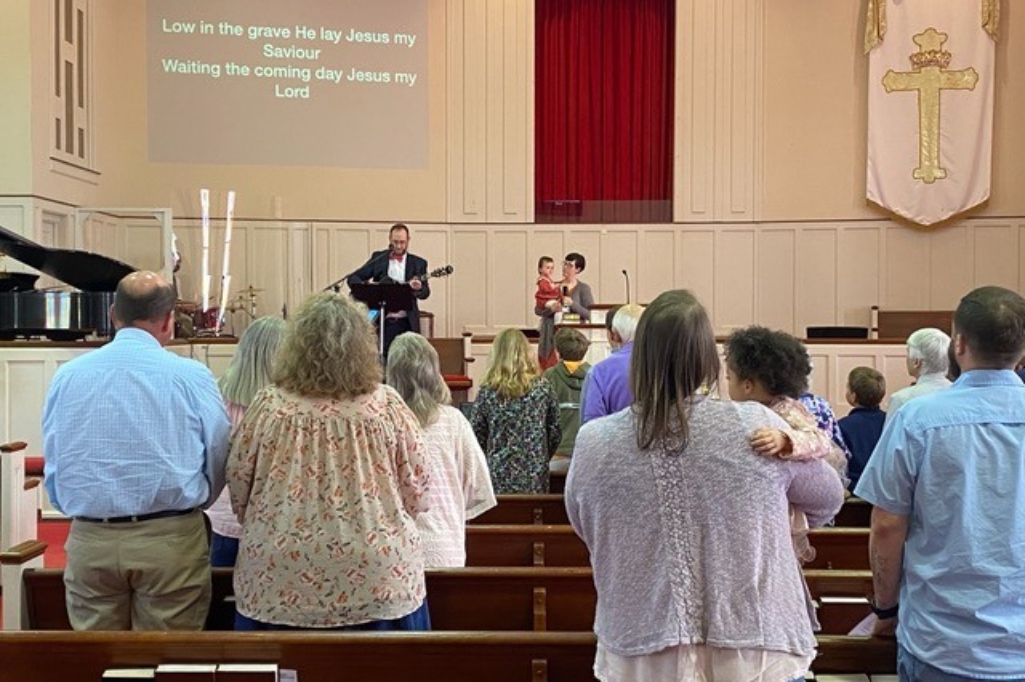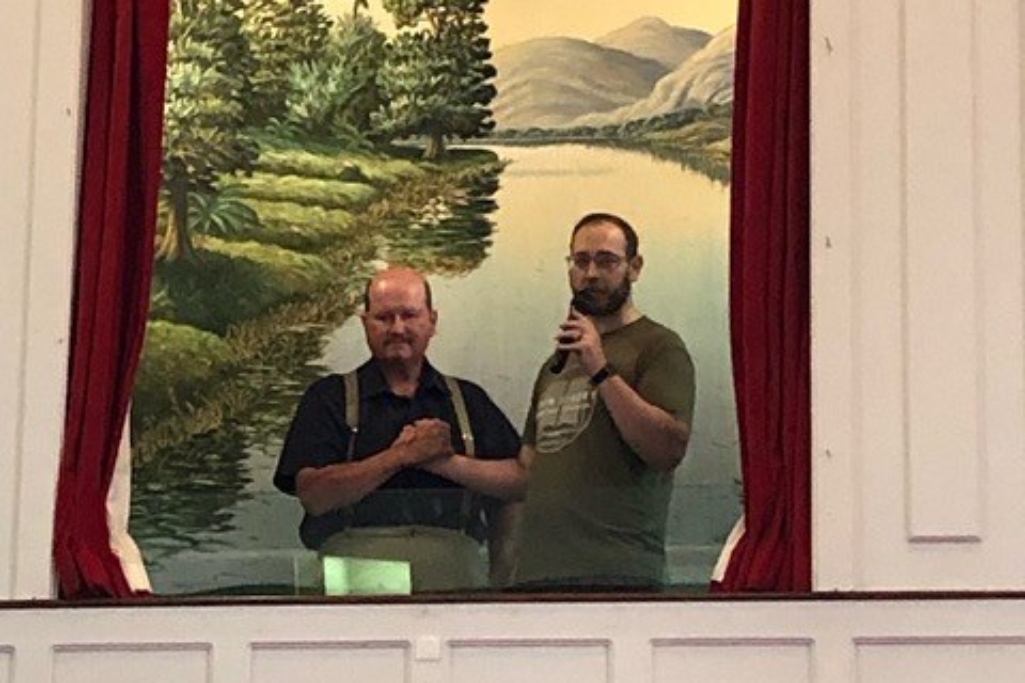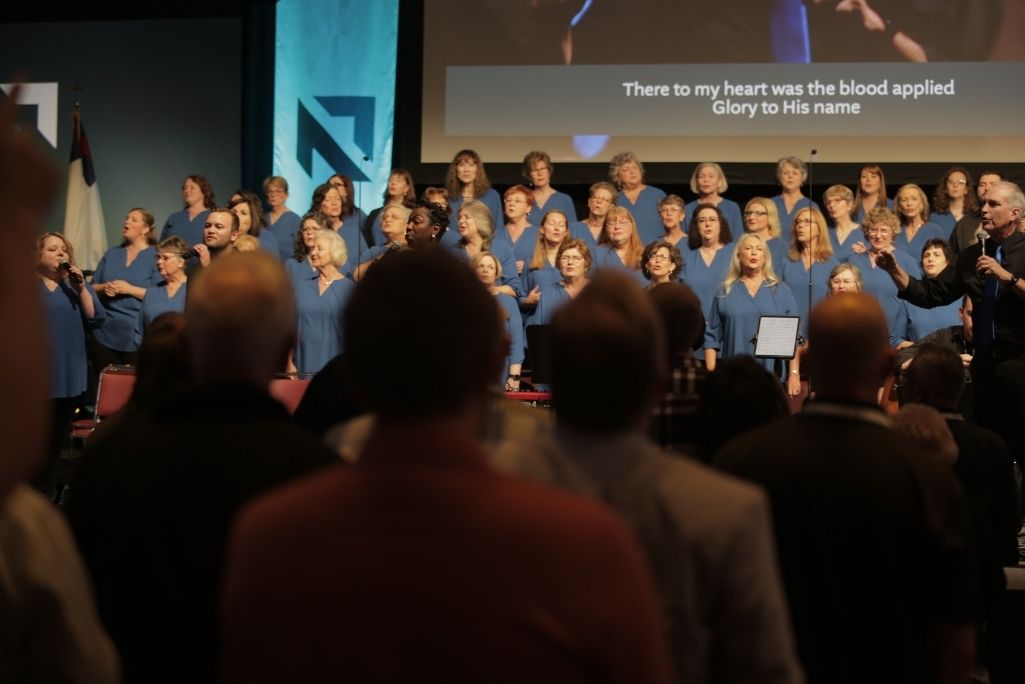Although it was difficult and painful, a North Carolina church is beginning to see the fruit of a challenging replant process that began more than two years ago.
Lead Pastor Dale DuBose and wife Meriana met and married while attending Southeastern Baptist Theological Seminary before moving to Spindale for Dale to become the youth pastor at Main Street Baptist Church in early 2015.
It was only a few months later that Main Street’s pastor would resign unexpectedly, leaving the position vacant and the congregation upset.
“It was a shock,” DuBose said. “It was a hard year both personally and with the church. It was like a funeral the day the pastor announced his resignation.”
Eventually, the pastor search committee asked DuBose to submit his name for consideration, and he did. He became lead pastor in August 2016 at the age of 23.
DuBose said the role has helped him complete his ministry training in a practical way.
“I had to learn how to do this on the fly in the real world, and I really learned how to preach by preaching to these people,” he said.
But the church was in a transition season, and despite his best efforts, it declined. A few members left, and giving steadily declined. DuBose took a second, part-time job at a local hospital.
The church went from around 75 members to around 50, and by early 2020 much conflict and division remained, DuBose said.
Then came the COVID-19 pandemic. Much like other churches, Main Street shifted to online ministry and shortly after the lockdown period ended, DuBose knew changes had to be made and a possible replant was in order.


Contributed photos Left, Pastor Dale DuBose helps lead worship during a Sunday service at Main Street Baptist Church. Right, Pastor DuBose prepares to baptize Shane Ramsey during a service in July.
He described replanting to his congregation by likening it to the gardening process of taking a dying plant in unhealthy soil and moving it to good soil where it can grow again.
The goal would be for the church to re-launch in late 2021, and DuBose said the plan was to examine every aspect of the church “leaving no stone unturned.”
“Things were not looking good and it was looking like we were going to die,” DuBose said.
“I wrestled with thinking things like ‘did the Lord send me here just to close the doors on this church?’ I even regrettably started to have doubts about if God’s Word really worked. That was a pretty low point for me.
“It became clear that we were either going to die faithfully or die unfaithfully, so I chose to die faithfully. I thought that was the best thing to do with a clean conscience before God. I was ready to risk it all.”
DuBose took deliberate steps to guide the church through the process. In his preaching, he began addressing things like ecclesiology and the anxiety that often comes with change. He challenged the congregation to fast one day each week, and he formed a replanting team with a handful of members.
“I believe the first few months really set us up for any possible success we would have,” DuBose said.
“We first had to admit we had issues and problems, and pray hard that the Lord would forgive us and set us on a clear path for the future. Anything lasting or fruitful that happened took place because we began praying.”
Despite some ongoing conflict, God slowly began to “breathe new life,” into the congregation. Since beginning the replanting process, the church has raised up its first-ever lay elder and other congregational leaders, successfully reconstituted and baptized six people.
“We are unidentifiable from where we were even one year ago,” DuBose said. “We are not the same church, and I attribute it all to God.” He added that he has become personally revitalized along with the church, which now has 45 members.
“God gave me and my wife hope again and gave me a light at the end of the tunnel that this was a worthwhile endeavor,” he said.
Although the replant mainly took place in-house, Main Street also received spiritual and practical help from other Southern Baptists.
The church joined the Pillar Network, which provided prayer and support. (According to its website, “The Pillar Network is a community of Southern Baptist Convention and International Baptist churches that are doctrinally aligned, missionally driven and committed to equipping, planting and revitalizing churches, together.”) The local Baptist association, Green River Baptist Association, provided support and guidance. Other nearby Southern Baptist pastors even took time to lay flooring, paint walls and help with other building renovations.
“One of the coolest things about being Southern Baptist is that there are churches who don’t look just like you, but they are willing to partner with you, and I saw that happen firsthand,” DuBose said.
“That is Kingdom work and the only way I would leave the SBC is kicking and screaming. I want to see it revitalized just like our church has been.”
When considering advice to other struggling pastors and revitalizing churches, DuBose said replanting is not easy, but worth the effort.
“The difficulty of replanting is often undermined or unspoken,” DuBose said. “I had no idea how hard this was going to be or the spiritual warfare that would take place.”
“Replanting is not a way out of difficulty and not for the faint of heart. It’s extremely difficult, but I do believe it’s worth it to see a church come back to life. It’s beautiful and worth all the hardship and sacrifice.”
(EDITOR’S NOTE – Timothy Cockes is a Baptist Press staff writer.)


